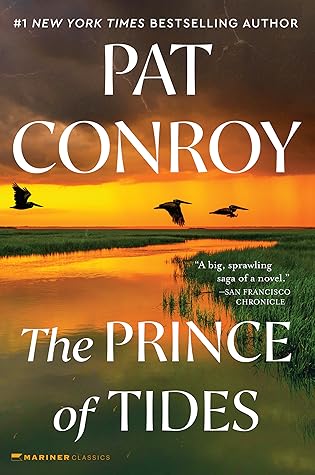More on this book
Community
Kindle Notes & Highlights
My wound is geography. It is also my anchorage, my port of call.
They, too, had a history—one that I remembered with both tenderness and pain, one that made me forgive their transgressions against their own children. In families there are no crimes beyond forgiveness.
Man wonders but God decides When to kill the Prince of Tides.
I betray the integrity of my family’s history by turning everything, even sadness, into romance. There is no romance in this story; there is only the story.
If I could summon the courage to tell it all, by speaking without forestallment, by humming the melodies of all those dark anthems that sent us marching so resolutely toward our appointments with a remorseless destiny, I could explain my sister’s heartbreaking war with the world.
My violence was subterranean, unbeheld. It was my silence, my long withdrawals, that I had turned into dangerous things. My viciousness manifested itself in the terrible winter of blue eyes. My wounded stare could bring an ice age into the sunniest, balmiest afternoon.
No one has the patent on human suffering. People hurt in different ways and for different reasons.”
Her secret, we would discover, was that once you have traveled, the voyage never ends, but is played out over and over again in the quietest chambers, that the mind can never break off from the journey.
A southerner can be moved to tears by almost any absurdity. It binds them to other southerners and makes them ridiculous to anyone born in the Northeast. I think it’s more a matter of weather than of temperament. The language of grief is an impoverished one in the South. Sorrow is admired only if it’s done in silence.”
In happy times, love poured out of me like bright honey from a stolen hive. But in times of hurt and loss I withdrew into a self-made enclosure of impenetrable solitude, and the women who tried to touch me there—all of them—drew back in utter horror as I wounded them again and again for daring to love me when I knew my love was all corruption.
None of them could make me forget the marsh and the river right out yonder. The smell of this place rides in the bones wherever you go. I don’t know if that’s a good or a bad thing.”
These are the quicksilver moments of my childhood I cannot recapture entirely. Irresistible and emblematic, I can recall them only in fragments and shivers of the heart.
In dreams, the porpoise remains in memory’s waters, a pale divinity who nourishes the fire and deepest cold of all the black waters of my history. There were many things wrong with my childhood but the river was not one of them, nor can the inestimable riches it imparted be traded or sold.
I would like to have walked his southern world, thanking God for oysters and porpoises, praising God for birdsong and sheet lightning, and seeing God reflected in pools of creekwater and the eyes of stray cats.
A family is one of nature’s solubles; it dissolves in time like salt in rainwater.
Rape is a crime against sleep and memory; its afterimage imprints itself like an irreversible negative from the camera obscura of dreams.
Violence sends deep roots into the heart; it has no seasons; it is always ripe, evergreen.
Nothing so affects a small town as the loss of its rarest and finest man. Nothing so affects a southern family as the death of the man who lent it balance and fragility in a world askew with corrupt values.
When I wept at his funeral, it was not because of my own loss. You carry a man like Amos with you, a memory of immortal rose in the garden of the human ego. No, I cried because my children would never know him and I knew that I was not articulate enough in any language to describe the perfect solitude and perfect charity of a man who believed and lived every simple word of the book he sold door to door the length and breadth of the American South.
The only word for goodness is goodness, and it is not enough.
We walked the Carolina earth without the wisdom and accumulated suffering of our forebears to instruct us in times of danger or folly.
“There’s a difference between life and art, Savannah,” I said as we moved out into Charleston Harbor. “You’re wrong,” she said. “You’ve always been wrong about that.”
As I steered the boat through the narrow channel, I tossed a small prayer toward the river. It was a prayer of gratitude. Though God had burdened me with strange and wounded parents, he had granted me the presence of the most extraordinary brother and sister to balance the hand. I could not have made the journey without them. Nor would I have chosen to make it.
I am southern made and southern broken, Lord, but I beseech you to let me keep what I have.
The white porpoise comes to me at night, singing in the river of time, with a thousand dolphins in radiant attendance, bringing charismatic greetings from the Prince of Tides, calling out our name: Wingo, Wingo, Wingo. It is enough, Lord. It is enough.


